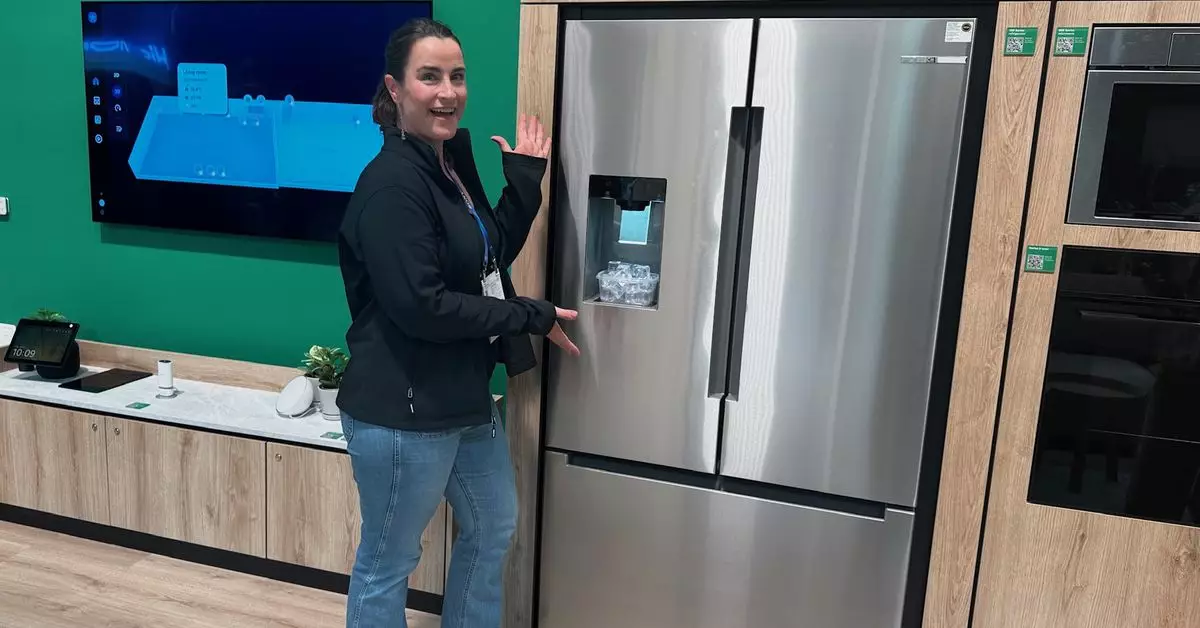The push for interoperability in smart home devices has reached a pivotal moment, and nothing exemplifies this trend more than Bosch’s introduction of its Matter-enabled appliances. As the tech world gears up for significant changes, a closer look at the impact of Matter on home appliances reveals both the promise of innovative features and some challenges ahead.
Matter, an open-source connectivity standard designed by a consortium of tech giants including Apple, Amazon, Google, and Samsung, aims to unify the fragmented smart home landscape. It encourages manufacturers to develop devices that can communicate with various ecosystems, making life simpler for users. With the new Matter protocol, devices within a household can operate over Wi-Fi, Ethernet, and even low-power mesh networking protocols like Thread, allowing for seamless communication and improved performance.
The essence of Matter lies in its ability to provide a secure and private environment for smart devices, eliminating the heavy reliance on cloud services. This shift promises a more efficient user experience, where devices respond faster and are inherently more reliable due to local connections.
At CES, Bosch showcased its 100 Series French Door Bottom Mount Refrigerator, the company’s inaugural foray into Matter-enabled appliances. Retailing at $2,500 and set for release in the US this spring, the refrigerator stands out not just for its sleek design but its technological advancements. Equipped with a chip that supports the Matter protocol, this appliance is set to revolutionize how homeowners interact with their kitchens.
A notable feature of the 100 Series is its anticipated firmware update this summer, which will enable users to control temperatures remotely and receive notifications via their preferred smart home platform. Such functionalities enhance convenience—imagine a smart speaker alerting you when the fridge door is ajar—transforming everyday tasks into manageable interactions through technology.
Bosch’s ambitions extend far beyond one refrigerator model; the company plans to integrate Matter across its entire suite of appliances, including its Siemens and Thermador lines. This effort represents a broader industry shift toward adopting unified standards, reflecting a collective understanding that interoperability is paramount in fostering consumer adoption of smart home technologies.
However, while promising immediate benefits for new appliance buyers, existing appliance owners may find themselves left out in the cold. Bosch has indicated that retrofitting Matter capabilities onto existing models poses substantial technical risks, which raises significant concerns for current users invested in the brand. The reluctance to update older appliances is a misstep for the company, potentially alienating customers who seek to benefit from interoperability without purchasing new devices.
Despite the groundbreaking advancements that Matter brings, challenges remain in ensuring widespread adoption across various platforms and devices. While support for Matter is growing—prominently within brands like Samsung SmartThings and Home Assistant—there’s still a notable gap in compatibility with major platforms like Google Home. The transition to smarter, more connected homes requires a concerted effort from all players to ensure that consumers can easily integrate and manage their devices.
Energy management capabilities are also on the horizon for Matter-enabled appliances, presenting opportunities for consumers to track their energy usage and streamline home energy consumption. However, the effectiveness of these features will depend on how seamlessly they can be integrated into existing energy management systems.
As Bosch steps into the future of smart home appliances with its Matter-enabled refrigerator, the landscape of smart living is set for a transformation. The implications stretch beyond simple connectivity; they signal a new era where devices work in harmony, enhancing convenience, security, and energy efficiency. Yet, for consumers to fully embrace this new reality, the industry needs to overcome obstacles related to backward compatibility and widespread support across platforms. If successful, we could see a paradigm shift that redefines how we think about our homes and their connected devices. The journey has just begun, and it will be fascinating to see how this technology evolves.


Leave a Reply